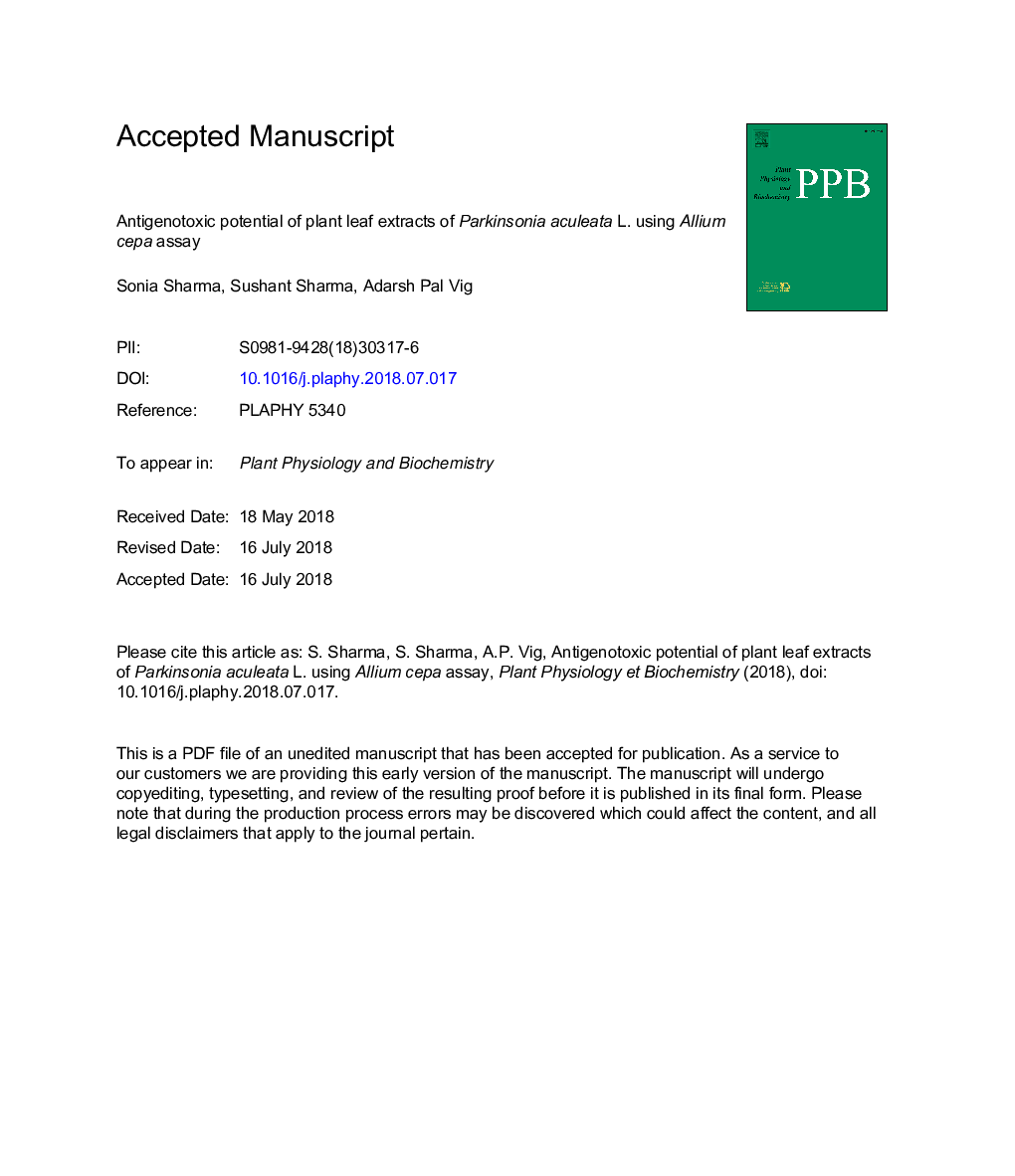| Article ID | Journal | Published Year | Pages | File Type |
|---|---|---|---|---|
| 8352518 | Plant Physiology and Biochemistry | 2018 | 31 Pages |
Abstract
The aim of the present study was to evaluate the antigenotoxic potential of P. aculeata L. leaf extract/fractions against maleic hydrazide (MH) using Allium cepa root chromosomal aberration assay. The excessive reduction in root growth and mitotic index value was observed after 3â¯h treatment of MH as compared to negative control (water). In case of MH treatment, frequency of aberrated cells significantly (pâ¯â¤â¯0.05) raised from 129 to 337â¯at 0.1â¯ppm and 2.0â¯ppm concentrations respectively. From root growth inhibition test with MH treatment, EC50 value i.e. 0.5â¯ppm was selected to study the antigenotoxic effect of different extract/fractions of P. aculeata L. leaves. All the extract/fractions showed increase in mitotic index and great reduction in chromosomal aberrations with rise in concentration against the genotoxicity of MH. Among all the extract/fractions, butanol and ethyl acetate fractions showed significant reduction in chromosomal aberrations in A. cepa cells and indicates the chemo preventive activity. Antigenotoxic property of this plant is due to the presence of various phytochemicals in leaf such as epi-orientin, Parkinsonin-A, Parkinsonin-B, orientin, iso-orientin, vitexin, iso-vitexin, C-glycosylflavone, parkintin, rotenoids, terpenoids, flavonoids, saponins, alkaloids, glycosides and anthraquinone etc. Our result showed that among all the treatments, simultaneous treatment showed best result followed by pre and post treatment. Further studies in animal model are suggested for further evaluation of the use of P. aculeata leaf extract in human welfare.
Related Topics
Life Sciences
Agricultural and Biological Sciences
Plant Science
Authors
Sonia Sharma, Sushant Sharma, Adarsh Pal Vig,
